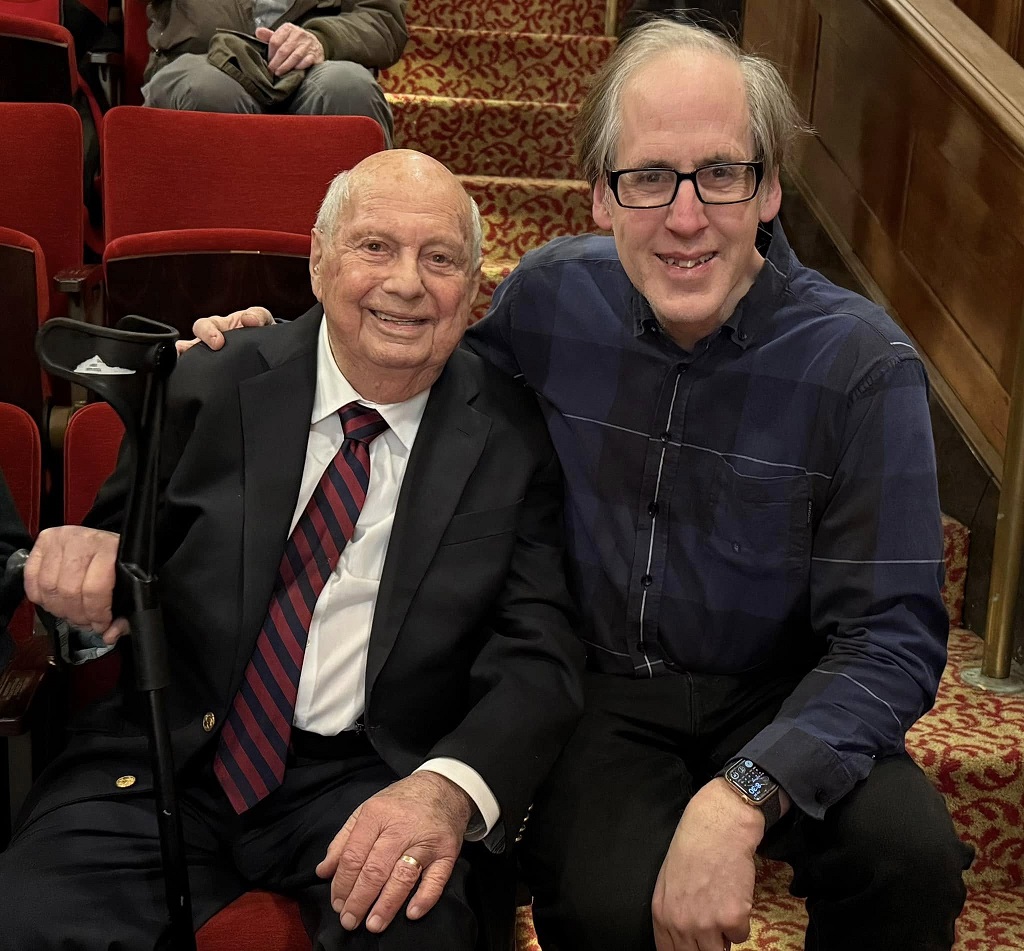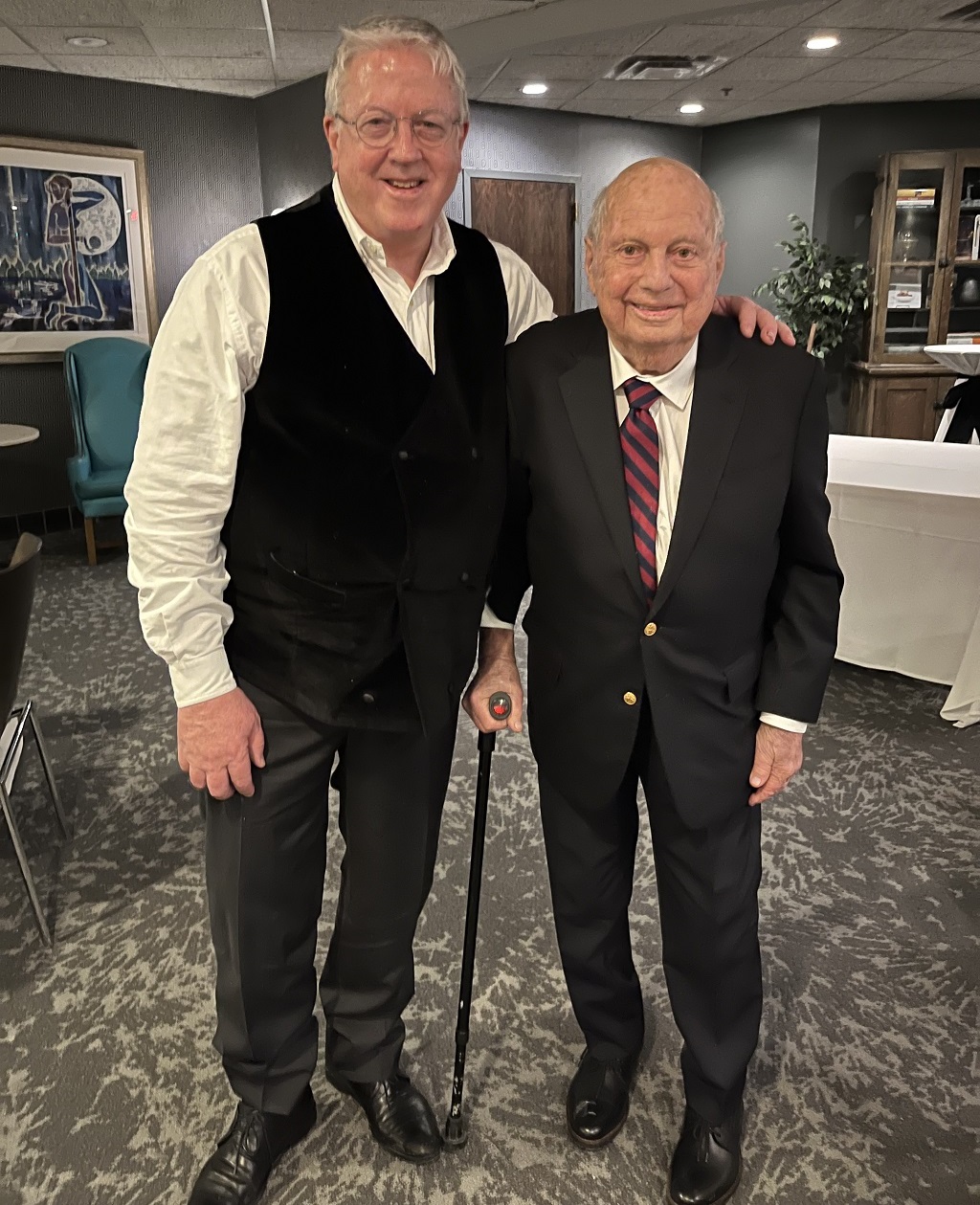In one sense, 2025 is already looking like a strong year for the promotion and presentation of film music as a number of festivals, both large and small, are being planned and staged as annual events in at least three countries around the world, even as individual composers continue to receive occasional recognition for specific contributions to the field. One case of the latter, is the January on-campus appearance of veteran Laurence Rosenthal at his alma mater, the Eastman School of Music in Rochester, New York, where he was presented with the Eastman Artist Award, an honor reserved for former grads "who have achieved great success in their chosen field and demonstrated exceptional commitment to the school". Reportedly, he is only the third person to receive it. More of that in a moment.
First, though, where is this new enthusiasm for international film music festivals coming from? Where is it playing out? Most publicly there are three major, sponsored events which intend to become annual galas: and two of them are brand new. One most encouraging example has been the survival and vigor of the so-called World Soundtrack Awards given out each year now since 2001 as part of the ongoing Film Fest Gent in Ghent (sic) Belgium. Past honorees have been the likes of Gabriel Yared, Nicola Piovani, Mark Isham, Elliot Goldenthal, Shigeru Umebayashi, and Laurence Rosenthal, each treated to a concert of his own music performed by the Brussels Philharmonic and then a subsequent handsome CD of excerpts conducted by Dirk Brossé. Widespread interest in major festivals like this certainly increases awareness of the whole film scoring field and of the composers themselves as legitimate music-makers of our time.
But now, taking its cue from that ongoing Gent Festival success, comes the announcement of a new annual event for the performance and promotion of screen scoring, the London Soundtrack Festival 2025, "dedicated to film, television, and games music" and to be held 19-26 March with a schedule of concerts, master classes, and screenings, all in commemoration of the late British composer Christopher Gunning. This year they are announcing the participation of a whole roster of celebrity composers from Howard Shore to Anne Dudley, Harry Gregson-Williams, Hildur Guönadóttir, and Natalie Holt. In the words of promoter Tommy Pearson, "We aim to be an unmissable date in the diary for all fans and concert-goers young and old, bringing the best music and performers to a wide audience with a packed programme of concerts and Q&As".

Not to be outdone, a new American festival is being prepared to premiere this coming October at the aforementioned Eastman School of Music – an annual composer-attended concert series to be called SoundTrax. For its maiden voyage, the dates are Oct.16-18 at Eastman in Rochester, upstate New York. In the words of festival coordinator, conductor, and Director of Eastman's Beal Institute for Film Music and Contemporary Media, Prof. Mark Watters: "Three evening concerts will begin by presenting Terrence Blanchard and his band with highlights from his film catalogue accompanied by the Gateways Foundation Orchestra. Night two will be John Corigliano's The Red Violin conducted by Jeff Beal and, finally, the Rochester Philharmonic will perform Alexandre Desplat's Harry Potter and the Deathly Hallows, Part 2. Other daytime concerts and panels will be announced soon. We're very excited".
All this action seems almost like a new stage in film music history: three separate, unrelated yet equally prestigious institutions planning all these performances, seminars, appearances and events -- a real upsurge in awareness – honoring both the history of the genre and preparing a new generation of practitioners who can actually write for the orchestra. Through programs like these, organizations like Brussels's Gent festival, entrepreneurs like London's Tommy Pearson, and media-savvy professors like Beal/Eastman's Mark Watters (himself a screen composer) are bringing film music to a wider audience than ever.
Now, about that recent individual visit by Laurence Rosenthal to the Eastman School: in essence, it could be considered a festival-in-miniature, acting-out what those upcoming 2025 international events hope to be like. January 23 & 24 were the Rosenthal dates: at first the now 98-year-old maestro held a master class with composition students on all-things-cinematic-and-musical, then attended rehearsals for the student performance of an original non-film work of his own, "Vienna: Sweet and Sour", to be performed by a student ensemble of harp and strings. As is typical of the still-active Rosenthal, he did much more than "sit-in" on those orchestral rehearsals…even coaching the conductor Brett Miller from the piano as to certain dynamics for the piece, urging the harpist to stand-out more from the surrounding string orchestra, wanting her instrument to be a character, not just a condiment, in the overall sound. To hear Rosenthal coaching Miller, urging him to increase the swirling energy of the piece (it is music set in the era when old sweet waltzing Vienna was being "soured" by modern cultural tensions) and then demonstrating some of those dramatic climaxes in-person at the piano was true inspiration.

As for what actually went on, the whole program of events, Prof. Watters reports: "Larry's visit to Eastman was an absolute triumph, for him, the school and me!... His masterclass, from all reviews, was a huge success. It was very well attended. The audience of approximately 75 ranged in age from students to those closer to Larry's age! He and I worked very hard on creating several movie clips from his catalogue but, unfortunately, we only made it through two from The Miracle Worker and two from Becket. He was anxious to talk about several things, so we were not able to get to the others. I hope to do so later in classes with my students. The Dean of the school, Kate Sheeran, hosted a lovely dinner that included Larry, his wonderful companion Sheila, his two daughters, Maria and Nadia, his son Jonathan, Jeff Beal (of the Beal Institute), Steve Bramson (longtime orchestrator and collaborator) with his wife Ruth, and Eastman historian Vincent Lenti. This preceded the concert".
One other feature that made this whole one-time event resemble a mini-festival-of-sorts was the student-oriented portion of the January 24th concertizing called "Visual Music 7.0". There, to accompany separate screenings of a 1928 silent movie, Laugh Clown Laugh, starring Lon Chaney and Loretta Young, five of Watters's chosen composition students were asked to compose their own soundtrack score for the film and the five very different approaches to the scenario were then performed live-to-picture – conducted by the young composers themselves -- proving, once for all, how variable musical reactions can be to the same material.
All things considered, that sort of practical, direct individualized education and these kinds of major public festivals are exactly the sort of experiences needed to grow and inspire the next generation of screen scorers -- musicians who will neither be swamped in their composing by melodramatic movie music clichés from the past nor lured by "minimalist" vamps and drones that are so prevalent today -- but instead, true composers whose screen music can shine even in performance on stage away from its film and which we, from the back of the hall, can enthusiastically stand and applaud.
John Caps has written on music for High Fidelity/Musical America and the New York City Opera; and on film music for Film Comment, Film International, National Public Radio, The Cue Sheet, and the University of Illinois Press's "Music in American Life" series. His most recent book is Overhearing Film Music: Conversations with Screen Composers from the SUNY Press (State University of New York).